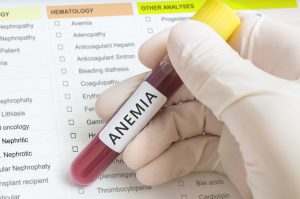Six Ways to Reduce Anemia Risk Following Gastric Bypass Surgery
Written by Consumer Guide to Bariatric Surgery Last modified on May 23, 2018
Gastric bypass surgery can be a true lifesaver, but it’s not without risk. New research shows that many who undergo this weight loss surgery have anemia — a condition marked by an insufficient level of red blood cells — 10 years after treatment shines a light on some of these potential risks.
The findings, which appear in the September 2017 issue of JAMA Surgery, are not surprising. It is well known that some weight loss surgeries — gastric bypass included — work by malabsorption, meaning that the body blocks the absorption of certain vitamins and minerals, including iron. (Iron deficiency causes anemia.)

Researchers examined the prevalence of anemia 10 years after gastric bypass and assessed whether bariatric follow-up influenced rates of anemia. The average rate of anemia before the surgery was 20 percent. This increased to 47 percent 10 years after surgery.
When they further broke down the data based on follow-up with the surgeon, the anemia rate in the group without bariatric follow-up increased to 57 percent, from 22 percent before surgery. By contrast, the anemia rate in the group with bariatric specialist follow-up did not increase significantly after 10 years (19 percent vs 13 percent).
“Our study suggests that follow-up with bariatric specialists more than 5 years after surgery, rather than with specialists with no bariatric expertise, can decrease long-term anemia risk,” the authors write.
Follow up with your surgeon
The main message of this study is clear: If you keep up with your bariatric surgery follow up schedule, you will be much less likely to develop anemia and other issues associated with the surgery as well. Some people may need more iron than what is found in a typical multivitamin. Your surgeon can advise you on how much iron you need.
Drink OJ with your meal
Vitamin C will increase your iron absorption by a whopping 85 percent, according to researchers out of Sweden. Vitamin C helps release a higher percentage of iron from certain foods.
Skip the tea
Do not take iron supplements with tea, cola or coffee because they can interfere with absorption.
Eat probiotic-rich yogurt daily
A one-cup serving of probiotic-rich yogurt with lactobacillus acidophilus can increase your ability to absorb iron by 50 percent, researchers report in the British Journal of Nutrition. Probiotics help restore the balance between good and bad bacteria for a healthier gut, and a healthy and balanced gut improves iron absorption in the colon.
Split up calcium and iron
Calcium inhibits iron, which means they should be separated for maximum absorption.
Talk to your doctor or pharmacist
Some medications may also interfere with iron absorption. Find out if any of yours are on this list.


